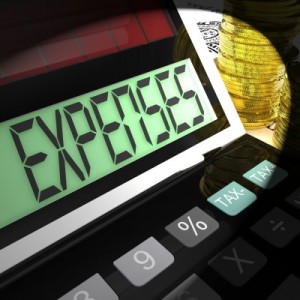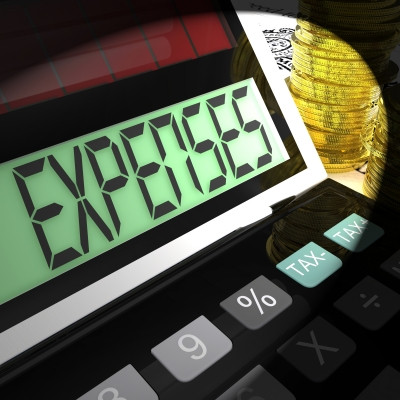Tracking your income and expenses is key to creating a logical budget that you can stick to. It also prevents you from missing a bill unexpectedly or not being able to prepare ahead of time for a financial emergency. Here are some steps you can take and tools that you can use to get a handle on your income and expenses…
1. Create an Online Account through Your Bank or Credit Union

2. Set Up Text or Email Alerts
A text alert can tell you when your bank account or credit card available balance has dropped below a predetermined threshold. You can also use alerts to remind you when a bill is due or have an alert sent to you after payment has been received or a charge is made over a certain dollar amount. When it comes to paying bills or keeping track of your money, these alerts and reminders can help keep you organized, which is half the battle when staying financially fit.
3. Create Automatic Bill Payments
Generally your bills will come due at the same time each month and some credit cards will even let you choose when, such as the first of the month or the 15th or whatever. Since you know when they come due you can actually schedule their payment in advance. If you are paying a credit card balance in full every month (and you should) the amount will be different every month. But you can still schedule the minimum monthly payment so you never get penalized for not paying the minimum. Then when your bill arrives just go in and edit the payment to the full balance for that month. Bills that are the same every month can be scheduled to be paid automatically.
4. Using Physical Checks
Even if you use mostly electronic payments you may occasionally need a paper check. You can order cheap checks through your bank or through a variety of other online sources. But if you don’t record them properly each time you make a purchase you can end up messing up your tracking. You need to be sure to write down the date, the amount of the purchase and your remaining balance after the fact. While an online account generally does this for you, it won’t happen in real-time with a paper check, so you have to be sure to account for the check when calculating your balance until the check is cleared.
5. Set a Time Each Week to Go Over Your Finances
The best way to stay organized is to stay vigilant. It may seen a bit compulsive but going over your income and expenditures at the same time every week can give you a constant picture of what comes in and comes out each week. While we may think that we have a good grasp on our financial situation, there may be minor expenses that add up over time and erode our ability to save or generally keep a positive balance in the bank.
Going over your expenditures each week may reveal that you spent too much on coffee or snacks at work that week, so you need to now cut back on or eliminate. If you wait until the end of the month (or several months) you may find yourself in a much deeper hole that will be harder to get out of. When going over your income and expenses, you may want to consider whether or not you are adequately saving for retirement or if life or other insurance could help with future expenses.
Whether we like to admit it or not, there will always be a need for money. While making money may not be your top priority, making sure that you have enough of it should be among your priorities. Therefore, it is important that you know the tools that you have at your disposal and the methods of which you can use to ensure you’re on stable financial footing.
Image courtesy of Stuart Miles and FreeDigitalPhotos.net

